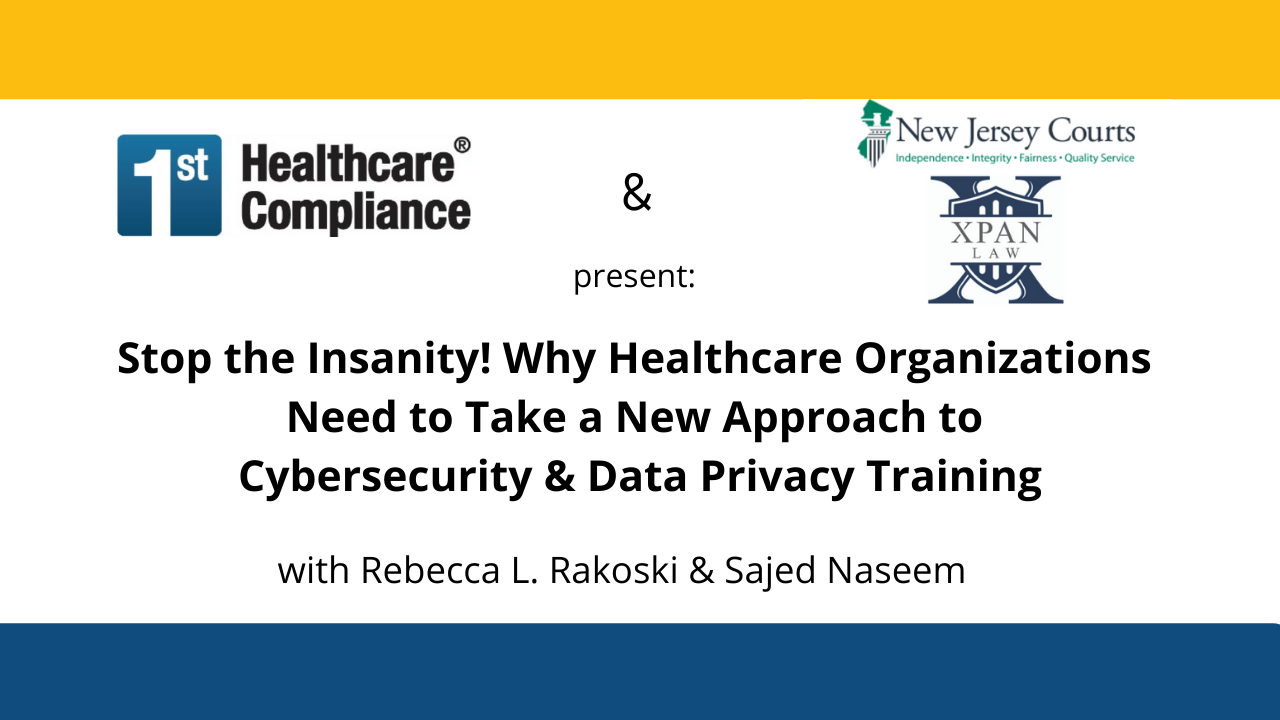
Stop the Insanity! Why Healthcare Organizations Need to Take a New Approach to Cybersecurity & Data Privacy Training
Rebecca L. Rakoski, managing partner at XPAN Law Partners and Sajed Naseem, Chief Information Security Officer (CISO) from NJ Courts is presenting this engaging webinar. Employees are one of an organization's greatest strengths, but also its greatest weaknesses. For years cybersecurity and data privacy advocates have been arguing that training employees is the only way to safeguard the organization. This is especially true in the healthcare arena where HIPAA training is required. However, these same healthcare organizations engage in training for their employees only to stare down the barrel of a data breach caused by one of those trained employees.The question becomes, why do we continue to repeat the same exercise expecting a different outcome?

Employment Law and COVID
Catherine Walters, Partner at Bybel Rutledge LLP will lead the presentation Employment Law and COVID-19 at the Healthcare Compliance Symposium 2021 on April 22, 2021.
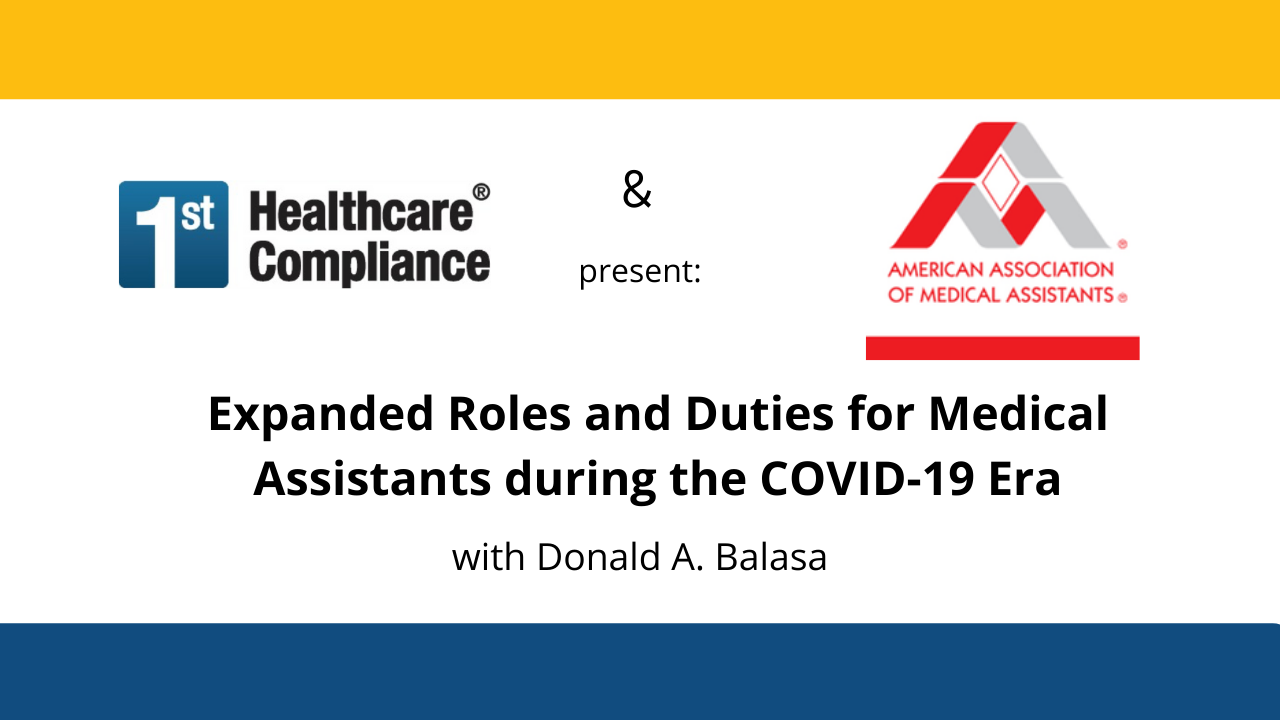
Expanded Roles and Duties for Medical Assistants during the COVID-19 Era
Donald A. Balasa, JD, MBA, Chief Executive Officer and Legal Counsel of the American Association of Medical Assistants (AAMA) leads this timely and informative webinar. The medical assisting profession has risen to the occasion as the United States and the world have been dealing with the most serious health crisis in the last 100 years. Medical assistants have been asked by public health officials, managers of health systems, and licensed providers to assume expanded roles and perform tasks beyond their normal scope of work. Because of the breadth of their education and training, medical assistants have been able to adapt quickly to these new responsibilities. Medical assistants have been called upon to work in nontraditional settings under the authority and supervision of a dedicated array of clinicians and administrators with whom they had not previously practiced (e.g., pharmacists).The purpose of this webinar is to identity the laws that establish the scope of practice for medical assistants, and to delineate the expanded tasks that medical assistants may be delegated under these laws. The legal principles placing limitations on the scope of work for medical assistants will be explained, and the expanded functions that are not delegable to medical assistants will be set forth.
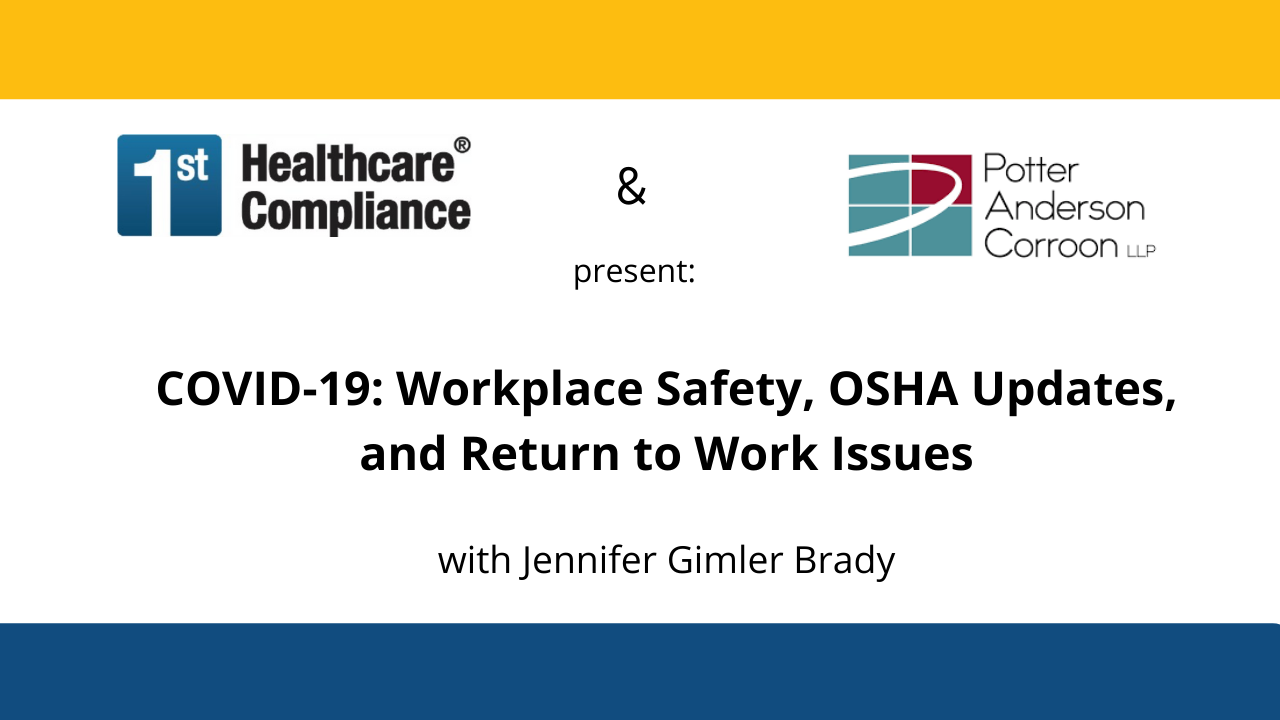
COVID-19: Workplace Safety, OSHA Updates, and Return to Work Issues
Jennifer Gimler Brady, Partner at Potter Anderson & Corroon LLP will be presenting this timely webinar. On January 29, 2021, the Occupational Safety and Health Administration ("OSHA") issued new guidance for COVID-19 workplace safety programs. Among other things, the guidance recommends several essential elements of an effective COVID prevention program. This presentation will discuss the OSHA guidance, as well as other important considerations that employers should take into account when planning for returning employees to the workplace, including the pros and cons of mandatory COVID vaccines.
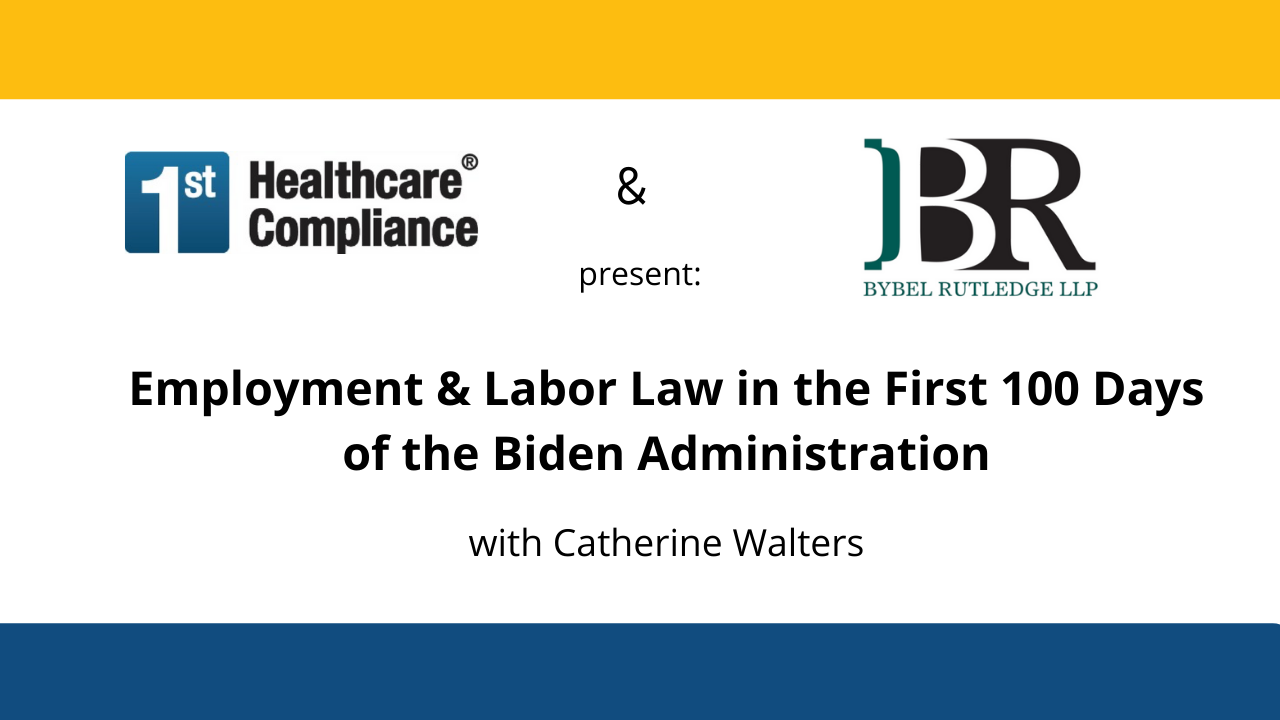
Employment & Labor Law in the First 100 Days of the Biden Administration
Catherine Walters, Partner at BYBEL RUTLEDGE LLP is a management-side labor and employment attorney representing employers of all sizes and will be presenting this timely webinar. A new President and a new DOL promise major changes for both employers and employees. We will discuss anticipated labor and employment policy changes under the new Biden Administration, including changes already in effect and changes yet to come.
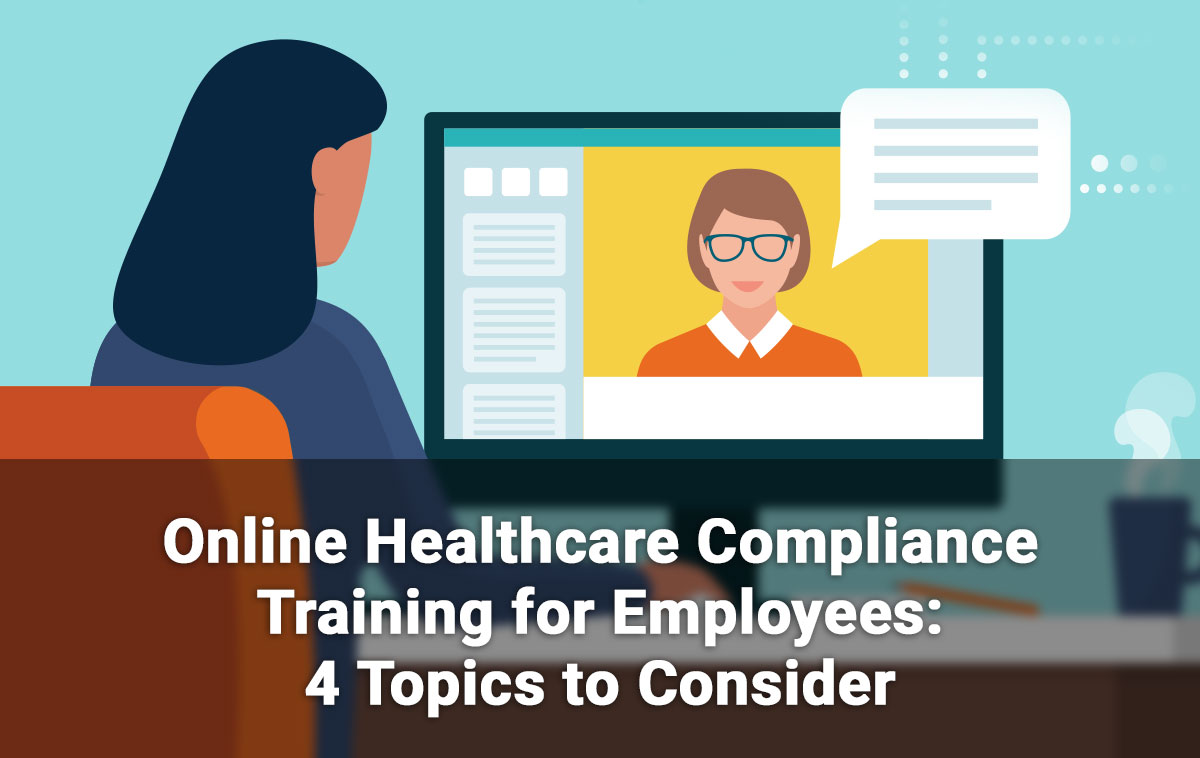
Business Associate Package
The Business Associate Package is designed for companies that…
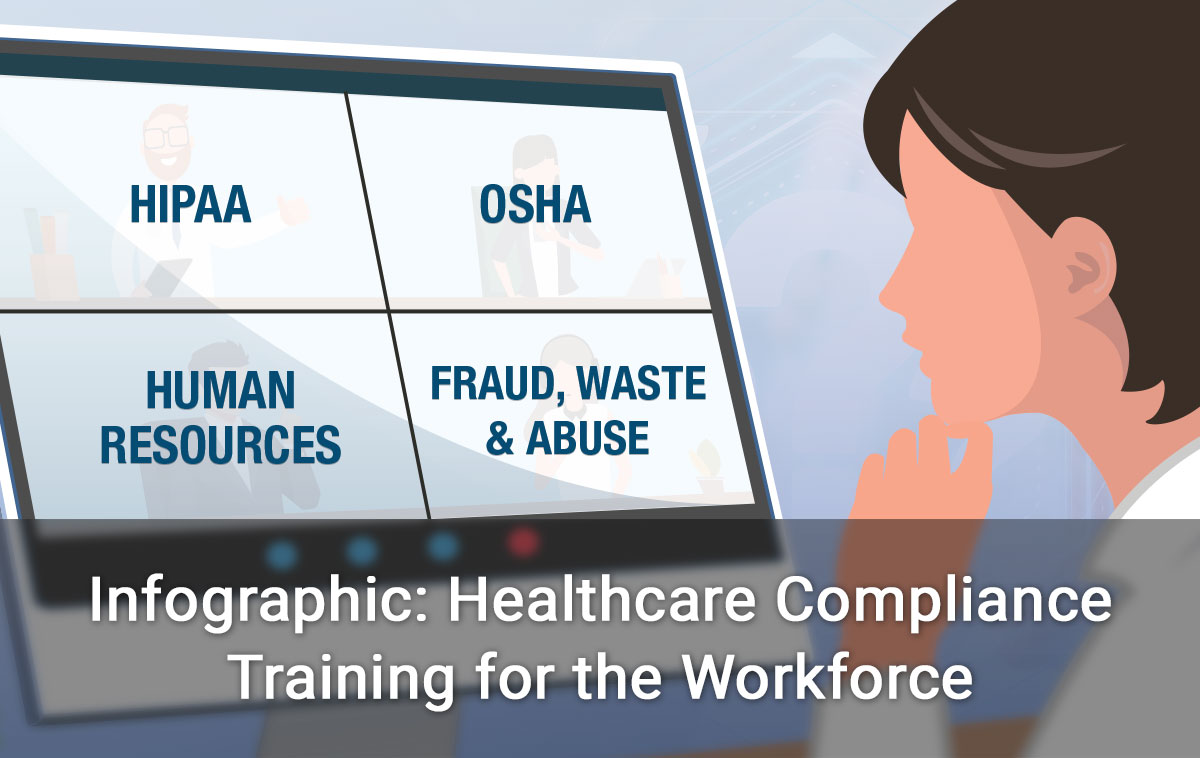
Infographic: Healthcare Compliance Training for the Workforce
Successful employee education is an integral part of a comprehensive healthcare compliance program. Compliance professionals must consider which topics should be offered to the workforce. Of course, proper training depends on variables such as type of healthcare organization, roles of employees and location of the entity. States may impose specific requirements that go beyond federal requirements. Generally, four broad categories cover the topics imperative to the start of a comprehensive healthcare compliance program.

Online Healthcare Compliance Training for Employees: 4 Topics to Consider
Compliance professionals agree that training the workforce is a major component of a successful compliance program. In fact, employee education is an important first step toward preventing, detecting, and mitigating noncompliance. As a result of the pandemic, online education is a necessity instead of a mere convenience for healthcare compliance professionals and administrators of medical offices tasked with implementing workforce training.

HIPAA Training for Covered Entities
This course covers how the HIPAA privacy, security and enforcement…
